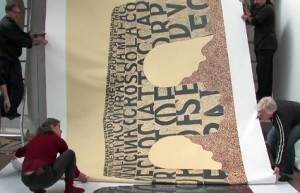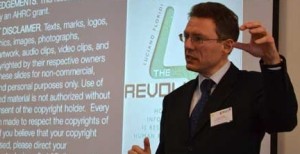Been busy organising this event…
http://heutagogy2014.blogspot.co.uk/
2014 Heutagogy Conference
Linking Heutagogy with Learning for the 21st century
A One Day event to be held on 6th June 2014
CONFERENCE PROGRAMME: #myheutagogy
9:00 Welcome & Introduction to the day: presenting the context of
Heutagogy (Fred Garnett/ Ronan O’Beirne organisers)
Morning theme; How helpful is the theory of heutagogy?
9:30 Keynote; Stewart Hase “Heutagogy; contributing to an educational revolution?” Followed by plenary discussion to identify HnS workshop themes. (30mins & 15mins plenary)
10:15 Hope ‘n’ Space workshop: to provide a question or an answer for
the discussion e.g. “A heutagogy toolbox for the 21st Century learning”
(tea and coffee free flowing) (group chairs to be identified in discussion)
11:30 Feedback from workshops – curated by Fred Garnett (&CC after)
12:00 Pecha Kucha – randomly chosen (6min 40s each maximum) all
audio recorded (all attendees invited to present a PK).
13:00 Lunch
Afternoon theme; How helpful is the practice of heutagogy?
14:00 Show and Tell of Practical Heutagogy: Heutagogy projects on display. Convivial Camera, Raspberry Pi/Wyliodrin, Soundwalk, WikiQuals, Digital/Analogue integration, Learning Planet, iPad Art, Open Sqolars, Silicon Skills, Hub Westminster, Transition Councils, Recipe Walks, Social Reporting, OpenRSA, Open Institutes…
16:00 Show and Tell plenary. What is Practical Heutagogy?
16:15 Heutagogy-enabled policy for the 21st Century; Nigel Ecclesfield
16.30 Plenary 21st Century Education; what’s missing from this picture?
BOOKINGS will open soon – watch this space
for more information please contact
Key People:
Monika Barton – Prague (organizer of last years – 2013 conference)
Lisa Marie Blaschke – Stuttgart (key speaker at 2013 conference)
Bernard Bull – Wisconsin US (enthusiast keen to help organize 2014 conference)
Fred Garnett – London (enthusiast keen to be involved in 2014 conference)
Stewart Hase – Sydney (organizer and be involved in 2014 conference)
Ronan O’Beirne – Bradford (organizer and be involved in 2014 conference)








